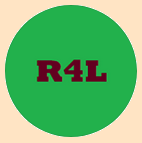

Here's where you'll find a load of useful stuff from us to help with home educating, created by experienced teachers who understand some of the challenges you and your learner(s) are facing. It's "from us to you" to try to help you make sense of things, to help you help your child(ren) and make life a little bit easier.
Even when home educating, learning often works best of there is some organisation, and almost all pupils and students, from early years right through to mature students at university, work best if their working week has some structure and routine. We recommend you try to stick to something reasonably similar to a school timetable.
But how do you go about creating that? What subjects? How much of each? What's the best order for each day? - Thankfully one of our team is experienced in creating school timetables. Here are our guides for Key Stage 2, Key Stage 3 and Key Stage 4 timetables - complete with some blank templates that you can edit in Word, or print out and scribble on!
We've had a number of questions about the mix of subjects to be taught at different Key Stages - from KS1 (Ages 5-7), KS2 (Ages 7-11), KS3 (Ages 11-13/14) and KS4 (Ages 13/14-16). Based on DfE guidlines, we've put together a few pages of notes that might be useful.
- Download here: Subjects and Key Stages
Further Details ...
- For Primary aged children (EYFS, Key Stage 1 and Key Stage 2) there's a lot more on the suggested content for each subject over in the pages of our Primary Section;
- for Key Stage 3, our Key Stage 3 National Curriculum page is the place to look. At Key Stage 4, the mix is much more down to the individual learner's subject choices.
A few parents have asked us about the idea of taking some time at the start of their home education journey to help their child overcome a barrier to learning (ususally either writing, reading or numeracy) as a priority.
Our answer is almost invariably a resounding "yes" - but without doing it to the point of "overkill".
A barrier in writing, reading or numeracy can be a HUGE block to learning in other areas. Seize the opportunity home-schooling gives you to focus on whatever your child NEEDS at this stage in their life. S/he will love you for it a lot more afterwards, when learning life in general becomes a lot more enjoyable without that barrier.
We've put together some ideas [mostly suited to KS2 and KS3 pupils, but may also help at later KS1 or some KS4 students]. We hope you find them useful.
- Download here: Blocks to Learning
The Internet and World Wide web can be wonderful tools for learning and communication - indeed, they have changed our lives in the last 25 years (writing as someone who is older than that!). But, as with many things that have changed our lives for the better, the Web also has a darker and dirtier side. It is vital that your learner (and you) stay safe out there surfing the Web. Here are a few pointers to good resources for teaching and learning about Web safety.
"SWGfL are a not for profit charity ensuring everyone can benefit from technology free from harm. Forming 1/3 of the UK Safer Internet Centre, our experts advise schools, public bodies and industry on appropriate actions to take in regards to safeguarding and advancing positive online safety policies." BBC Bitesize KS2 Digital Literacy
Some good materials at Key Stage 2 here. BBC Bitesize KS3 eSaftey
Some good materials at Key Stage 3 here.
Some people call this stuff pedantic. We would beg to differ. If your child's writing is to make sense, it helps if they can distinguish between their there and they're, or know the difference between stationery (pens, paper and so on) and stationary (not moving). Apart from making sure your learner is understood, and not being laughed at for an error, there is a little matter of spag (spelling, punctuation and grammar) points to be awarded in many GCSE and A Level exams - these points can often nudge a student up or down a grade.
The University of Richmond's Writing Center has some excellent notes and guidance on its Writing Center site (forgive a few American spellings, like Center, but it's an excellent site!)
Our other sites page has a growing list of friends' learning sites, useful Facebook groups, and sites recommended by us or our friends.
For example, our friends at GCSE Revision Monkey have some excellent resources for Sciences.